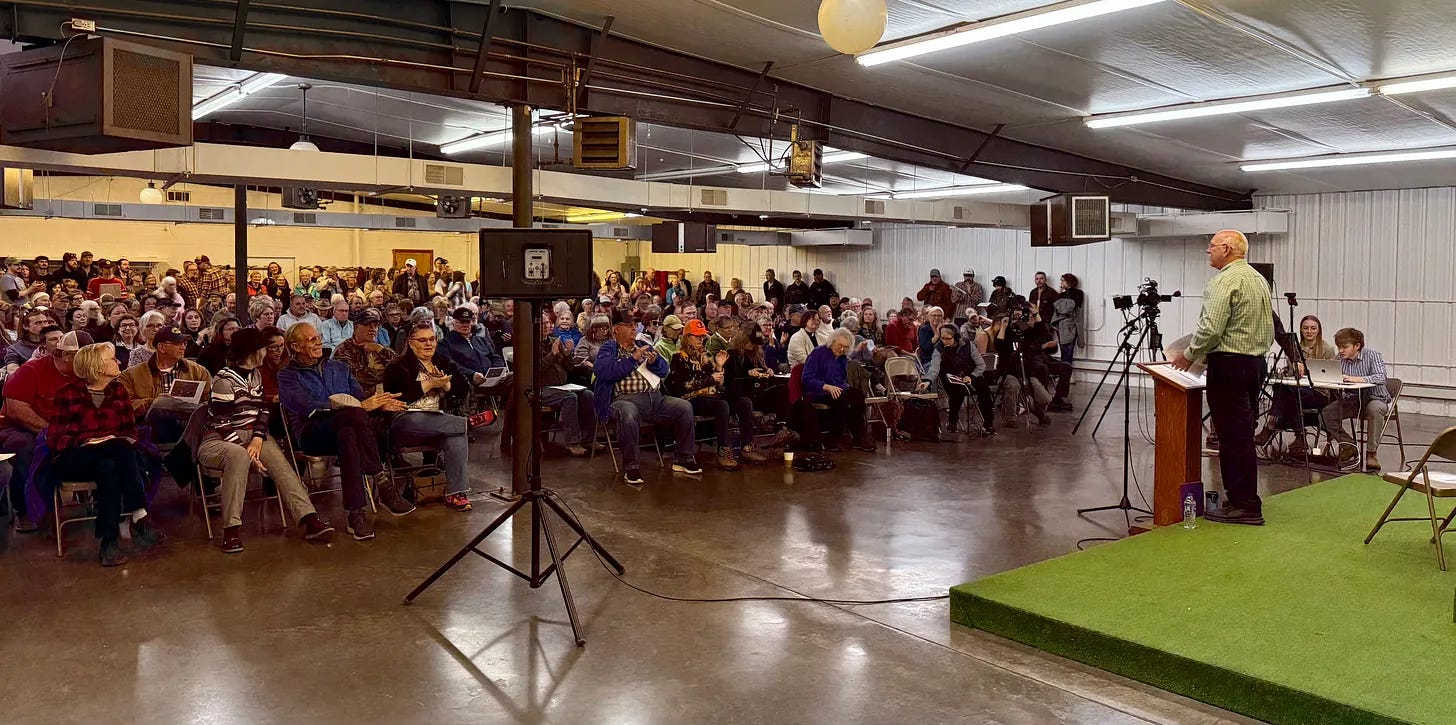Fundamental Data Responds to Concerns About Water, Light, and Noise Pollution
The company also acknowledges that its power plant is intended for data centers
A letter from Fundamental Data to state pollution regulators sheds new light on the company’s plans, and seeks to assure the public that pollution, excessive water use, and other concerns raised by opponents won’t be a problem.
Until now, Fundamental Data has been publicly silent on why it wants to build a large off-the-grid power plant between Davis and Thomas. However, in a May 7 letter to the West Virginia Department of Environmental Protection, the company acknowledges that the electricity will be used to run data centers.
The project “arises at a time of extraordinary technological transformation and global competition,” the letter states. “The United States faces growing pressure from foreign adversaries, particularly in areas of artificial intelligence and advanced computing. The essential infrastructure to support this innovation, particularly reliable power generation, has lagged nationwide due to regulatory and permitting delays.”

Fundamental Data’s responses to concerns raised by local residents about its proposed facility include:
Water consumption. Many opponents of the facility say that power plants and data centers need huge amounts of water for cooling. The letter states that its proposed power plant “does not plan any consumption or use of water resources from or discharge of wastewater to local rivers, streams, or municipal systems.”
Light pollution. Fundamental Data states, “The plant is sited in a lowland area surrounded by hills that should substantially limit and may even completely obscure visibility of the plant from public roadways or populated areas.”
Noise pollution. “The facility expects to operate at noise levels below the threshold requiring hearing protection under OSHA regulations and is physically more than one mile from the nearest occupied structure and is buffered by topography and forest.”
However, the letter applies only to the power plant the company wants to build, and it doesn’t address the impact of the data centers that would be powered by electricity from Fundamental Data’s power plant. For example, critics of data centers say they give off a loud, continuous hum that can be heard well beyond their perimeter.
“We understand that public interest in the project has increased, and we are committed to engaging constructively with local stakeholders,” the company’s letter states.
Employment promises
Critics say that while power plants and data centers create hundreds of jobs during the construction phase, once completed they provide a relatively small number of family-supporting jobs. Most of the jobs at such developments are relatively low-paying, like security and janitorial positions, critics say.
Fundamental Data responded to that concern as well. “If advanced, the project will result in the creation of substantial, high-paying, permanent jobs and generate unprecedented tax revenue for local jurisdictions,” its letter states.
However, the letter provides no specific estimates of the number of jobs that would be created by the power plant or affiliated data centers.
Opponents respond
Tucker County resident Nikki Forrester, a spokeswoman for Tucker United, a local group opposed to the proposed facility, said Fundamental Data’s assurances are unconvincing.
“We deserve to know what will happen to our community.”
“Fundamental Data’s lack of transparency about this project is still deeply concerning,” Forrester said in a statement. “While the company finally acknowledged the plant would indeed be used to power data centers, it didn’t provide any clear information on air pollution, water usage, or other specific details that we need to understand the facility’s impacts. If Fundamental Data wants to partner with community members and address our concerns, then why aren’t they being transparent about their plans? We do not believe this is confidential business information. We deserve to know what will happen to our community.”
Confidential information
Fundamental Data’s application for an air quality permit contains extensive redactions, citing “confidential business information.” State regulators recently placed the project on hold, seeking additional justification for those redactions after receiving hundreds of comments from the public expressing concerns about the company’s plans.
“Our confidentiality claims are not intended to obscure our operations from the public.”
The main purpose of Fundamental Data’s May 7 letter was to respond to that request for additional information.
“Our confidentiality claims are not intended to obscure our operations from the public but are necessary to protect sensitive, proprietary data from our competitors,” the letter states.
Fundamental Data’s letter includes lengthy legal arguments explaining why the company believes the redactions are necessary and comply with state law. The letter also states that public pressure should not affect state regulators’ decision on whether to grant the company the necessary air quality permit.
“The number of inquiries about the project received by the Department does not affect the nature of the information redacted,” the letter states. “We respectfully submit that our redactions are correct, consistent with applicable law, and are absolutely crucial to our competitive position in our field.





Fundamental Data's reply to most Tucker Countians' concerns is boiler plate drivel. Do not insult our intelligence.
Their response to the concern about light pollution reveals (willfull) ignorance or an attempt to address an issue that wasn’t asked while not addressing one that was. Not being able to SEE (emphasis mine) the data center or power plant has little to nothing to do with the light pollution it will create. Additionally, it’s pretty certain there will be more than one data center so not all of them will be built in the same low lying area as the first one.
The camel is trying to get its nose under the tent, folks. Stand firm.